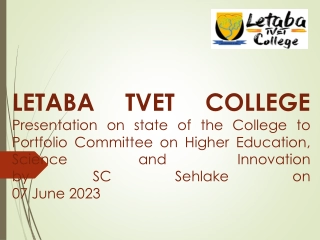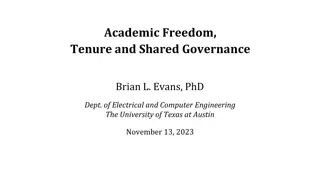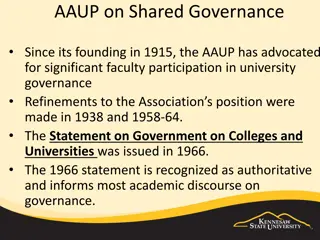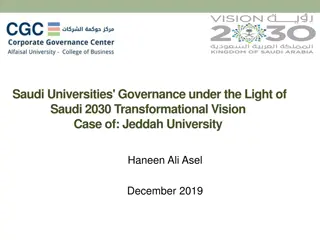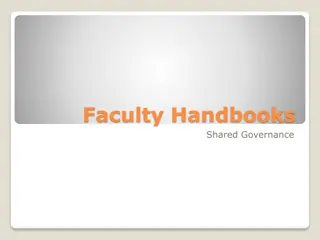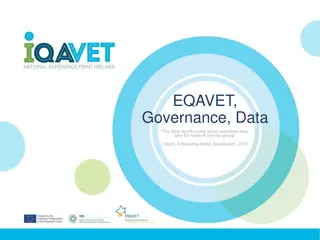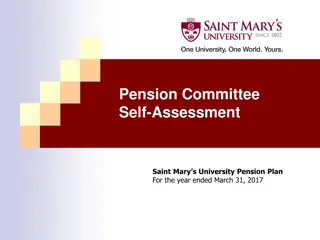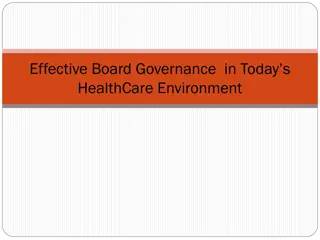THE BASICS OF SHARED GOVERNANCE
Understand the key responsibilities of a secretary in shared governance, including keeping records, notifying constituents, managing correspondence, adhering to meeting times, and maintaining detailed meeting minutes. The secretary plays a crucial role in facilitating efficient committee operations and ensuring transparency.
Download Presentation

Please find below an Image/Link to download the presentation.
The content on the website is provided AS IS for your information and personal use only. It may not be sold, licensed, or shared on other websites without obtaining consent from the author.If you encounter any issues during the download, it is possible that the publisher has removed the file from their server.
You are allowed to download the files provided on this website for personal or commercial use, subject to the condition that they are used lawfully. All files are the property of their respective owners.
The content on the website is provided AS IS for your information and personal use only. It may not be sold, licensed, or shared on other websites without obtaining consent from the author.
E N D
Presentation Transcript
THE BASICS OF SHARED GOVERNANCE For the Secretary
SECRETARYS DUTIES (MODIFIED FROM ROBERT S RULES) Keep minutes and records associated with committee work. Keep a record of who attends or misses meetings (voting, non-voting, guests) Notify constituents of their appointments to the committee and/or workgroups of the committee Send proposal documents and agenda as requested by the chair Assist chair in sending out notice of meetings Conduct the correspondence of the committee
SECRETARYS DUTIES (FROM ROBERT S RULES) 1. To keep the records of the committee and the minutes of the meetings 2. To keep a register, or roll, of the members and to call the roll when required 3. To notify constituents of their appointments to the committee and workgroups of the committee 4. To furnish committees with all papers (proposals) referred to them 5. To send out proper notices of all called meetings 6. To conduct the correspondence of the committee
MEETING TIMES Committees will meet at the established time unless a committee has no agenda items or a quorum of the committee members cannot be present. If a committee has work groups, it will have agenda items because work groups need to report their activities every month. According to Robert s Rules, a quorum of a deliberative assembly is a majority of all members and not only those who have voting powers. Ex Officio/non-voting members are included in a quorum. Meeting times should not be changed by committees. They are established in the Shared Governance Document.
MINUTES OF MEETINGS The secretary of a committee is responsible for keeping the minutes. Minutes should contain the following items: A roll call of members noting absence or presence Agenda items (proposals and other paperwork as appendices) Dates of meeting and other important dates Actions or tasks (proposal discussed, announcements made, actions taken)
MINUTES OF MEETINGS (CONTINUED) Main points (What motions were made and seconded. Who said what in the discussion. Exact words and side talk should not be included.) Decisions made by the participants (Motions made, Number of votes, Motions Approved, Disapproved, Proposals Tabled) Record reports on activities or announcements Announce next meeting time and place
SHARING MINUTES Secretaries should share minutes with committee members electronically as quickly as possible after a meeting so that the minutes can be approved and submitted to SGOC Secretary (Tina Bradley). Committees will share committee-reviewed minutes with the campus through the SGOC Secretary to be posted to a designated public venue within five working days of a convened meeting. Special Note: If a committee has reviewed and approved minutes (electronically) for dissemination to the campus, the minutes do not then have to be approved in the next meeting. They have already been approved by the committee.
WHO SPEAKS IN MEETINGS? The Chair decides who speaks at meetings and when. In the interest of stated shared governance principles (Appendix B), speakers making proposals should be allowed to finish their proposals before others speak. Robert s Rules (pg.3) states that discussion does not occur until a motion has been made and seconded. Speakers are then allowed to speak when recognized by the chair.

 undefined
undefined



